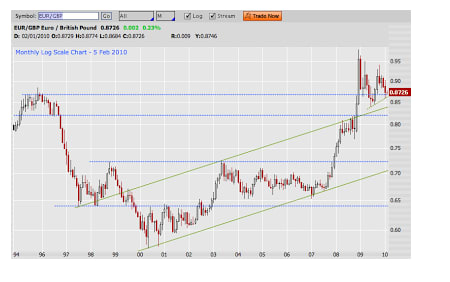German bond yields to trump Japan as ECB battles deflation
(ECBがデフレと闘う中、毒国債金利が日本より↑)
By Ambrose Evans-Pritchard
Telegraph: 7:14PM GMT 24 Nov 2014


(ECBがデフレと闘う中、毒国債金利が日本より↑)
By Ambrose Evans-Pritchard
Telegraph: 7:14PM GMT 24 Nov 2014
"Be very bullish. The huge elephant in the room is ready to roar again," RBS advises clients
「めっちゃ強気でいけ。誰も口に出さない大きな秘密がまた雄たけびを上げそうだゾウ」とRBSがクライアントにアドバイス。
German bond yields are to fall below Japanese levels and plumb depths never seen before in history as Europe becomes the epicentre of global deflationary forces, according to new forecast from the Royal Bank of Scotland.
RBSの最新フォーキャストによると、ヨーロッパが国際デフレ大地震の震源地になったおかげで、ドイツ国債の金利が日本国債以下の水準まで下落して、史上前例のない奈落の底まで行きそうだそうです。
"We are seeing 'Japanification' setting in across Europe," said Andrew Roberts, the bank's credit strategist. "We expect 10-year Bund yields to cross the 10-year Japanese government bond and we are amply positioned for such an outcome."
同行のクレジット・ストラテジスト、アンドリュー・ロバーツ氏はこう言っています。
「ヨーロッパ全域での『ジャパニフィケーション』を目撃中だぞ」
「ドイツ国債10年物の金利は日本国債10年物の金利を超えるんじゃないかな。僕らはもう準備ばっちりだから」
Mr Roberts said it is a "weighty win-win" situation for investors. If the European Central Bank launches full-blown quantitative easing, it will almost certainly have to buy large amounts of German Bunds, and these are becoming scarce.
ロバーツ氏によると、これは投資家にとって「ウィン・ウィン」だそうで。
ECBが本格的な量的緩和を開始したら、ほぼ確実にドイツ国債を大人買いするわけで、ドイツ国債は稀少になりつつあります。
"Net supply in Germany is zero since they are in budget surplus this year and next, and they have written a balanced-budget amendment into their constitution. There are simply fewer and fewer Bunds to buy, and everybody wants them," he said.
「ドイツは今年も来年も黒字だから発行数はゼロだし、財政均衡条項も憲法に書き込んじゃったし。買うことの出来るドイツ国債は減る一方で、猫も杓子も買いたがってる」
It is assumed that if the ECB buys sovereign bonds, it will have to buy them evenly in accordance with its capital "key". This implies that 28pc would have to be German debt.
ECBが国債を買うとすれば、資本の「鍵」に従って万遍なく買わなきゃいけなくなります。
これはつまり28%はドイツ国債を買わなきゃダメってことです。
Yet if the ECB fails to deliver on hints that it will expand its balance sheet by €1 trillion, the damage would be so enormous that Europe would be sucked into a depressionary vortex, according to the bank. Bund yields would fall for different reasons, as debt markets began to reflect a Japanese-style deflation trap.
でも、もしECBがバランスシートを1兆ユーロ拡大するもんねと言っておいて拡大しなければ、そのダメージってばヨーロッパが不況の渦に飲み込まれるほどとんでもないものになるんだそうですよ(RBS曰く)。
ドイツ国債の金利は別の理由で下がるでしょうけどね…債券市場が日本式デフレ・トラップを反映し始めるにつれて…。
The bank's credit team is betting that the ECB will act more quickly and on a greater scale than widely assumed, launching purchases of corporate bonds as soon as early December and full sovereign QE in February once the European Court has ruled on a previous debt rescue plan (OMT). "We think Germany will be dragged to the table, kicking and screaming all the time," said Mr Roberts.
欧州司法裁判所が以前の救済策(OMT)に関する判決を下したら、ECBはもっとさっさと、しかも一般的に思われているよりも大きなスケールで動く、早ければ12月にも社債の購入を始めて、2月には本格的な国債の購入を始める、という目にRBSのクレジット・チームは賭けています。
「ドイツは引きずり出されるんじゃないのかなー…ずっとギャースカわめいてジタバタしながら」
Japanese yields are just 0.45pc, which is steeply negative in real terms now that 'Abenomics' is driving up Japan's inflation rate. This is a deliberate strategy to whittle away a public debt that has reached 245pc of GDP.
日本国債の金利はたったの0.45%でして、これは「アベノミクス」が日本のインフレ率を押し上げている今や、実質的にはがっつりマイナスです。
これはGDPの245%に達しちゃった政府債務をナイナイするためにわざとやってることです。
German yields are 0.78pc. RBS expects the two bonds to cross as Japanese yields rise while German yields fall. This would be a radical change in the structure of the global financial system.
ドイツ国債の金利は0.78%。
RBSの予想だと、日本の金利が上昇してドイツの金利が下がるので、日独の国債金利はクロスするそうです。
これはグローバル・フィナンシャル・システム構造の異次元的チェンジになりますね。
Mr Roberts said ECB chief Mario Draghi is a "super-dove" who has to disguise his views but is in reality leading the North's hawkish bloc by the nose. "He has to tread a bit more delicately given sensitivities in a couple of Teutonic countries. This year, for all the talk of QE being a step too far, they have actually already been easing aggressively. They are not sitting on their hands," he said.
ロバーツ氏は、マリオ・ドラギECB総裁は自分の見解を誤魔化さなきゃいけないけど現実には北部欧州のタカ派陣営を引きずり回す「スーパーハト」だと言います。
「総裁はチュートン系の2ヶ国がぴりっぴりしてることを考えて、もうちょっと慎重に動かなくちゃいけないよね。今年はQEはやり過ぎだの何だの騒がれたけど、実際には思いっ切り緩和してきたじゃん。ぼけっとしてるわけじゃないよ」
The bank expects €500bn of asset purchases in the first round. This comes on top of easing by Japan and China, and will feed a euphoric rise in asset prices across the board. "Be very bullish The huge elephant in the room is ready to roar again, and we want to be onside," it said, with the hallmark use of mixed metaphors that characterize City argot.
ECBは第1ラウンドで5,000億ユーロの資産を買い付けると予測しています。
日本と中国が緩和しているのに加えてこれをやるわけですから、そこら中で資産価格の爆上げ祭に燃料投下ってことになるでしょうよ。
「めっちゃ強気でいけ。誰も口に出さない大きな秘密がまた雄たけびを上げそうだから。オンサイドにいたいからね」とのことで、シティの隠語を特徴付けるメタファーをあれこれミックスした太鼓判を押してくれました。
"It is a good time to be an equity, and credit, and periphery and bond bull, All 'risk on' wins."
「株にとっちゃ良い時期だよねー。信用も。あと周辺とか債券ブル。『リスク・オン』は全勝」





















